The conference theme was From Crisis to Resilience: Transforming the Asia-Pacific Region’s future through disaster risk reduction.
Water Sensitive Cities Australia (WSCA) was invited to be part of this important event aimed at promoting coordination and cooperation on disaster risk reduction in our region. APMCDRR is the largest biennial gathering of governments and stakeholders from the Asia-Pacific region, the world’s most disaster-prone region.
Professor Tony Wong, Chair of the Water Sensitive Cities Think Tank, was part of a panel considering the role of nature-based solutions in disaster risk reduction:
- What role do coastal ecosystems (e.g. forests, mangroves and coral reefs) play in protecting communities against hazards such as storm surges, strong winds and cyclones?
- What emerging technologies are available to scale up prevention and mitigation activities?
- What is adaptive infrastructure and how has it been applied?
- What role do local/city authorities, the private sector, communities and civil society organisations play?
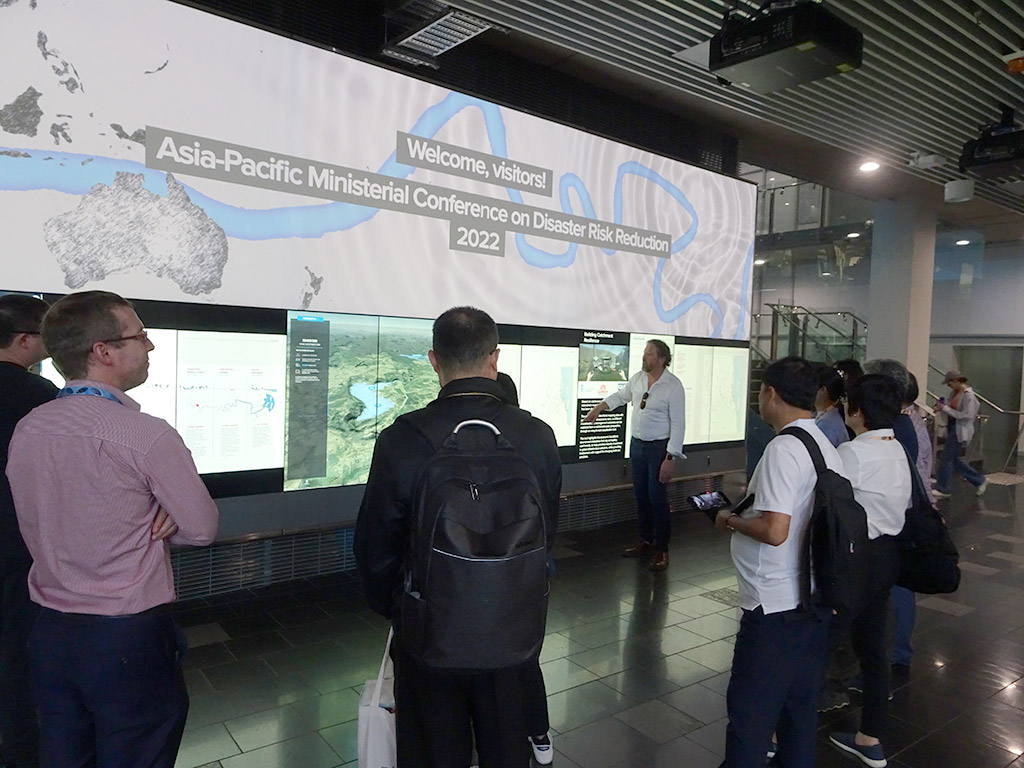
WSCA also collaborated with the International WaterCentre, Queensland University of Technology (QUT), Queensland Reconstruction Authority and Brisbane City Council to lead a site tour demonstrating how a water sensitive city approach that uses nature-based solutions can mitigate the impacts of multiple hazards, including floods, droughts and extreme heat events
Delegates from Thailand and Viet Nam experienced climate resilient urban development in situ at the South Bank Rainbank and on the big screen at the Cube. Presenters shared their perspectives and experiences at integrating nature-based and decentralised solutions with conventional urban infrastructure solutions in Brisbane, Queensland and Australia. They emphasised the importance of community engagement and private sector activation. The tour finished with an informal networking lunch for delegates and presenters.
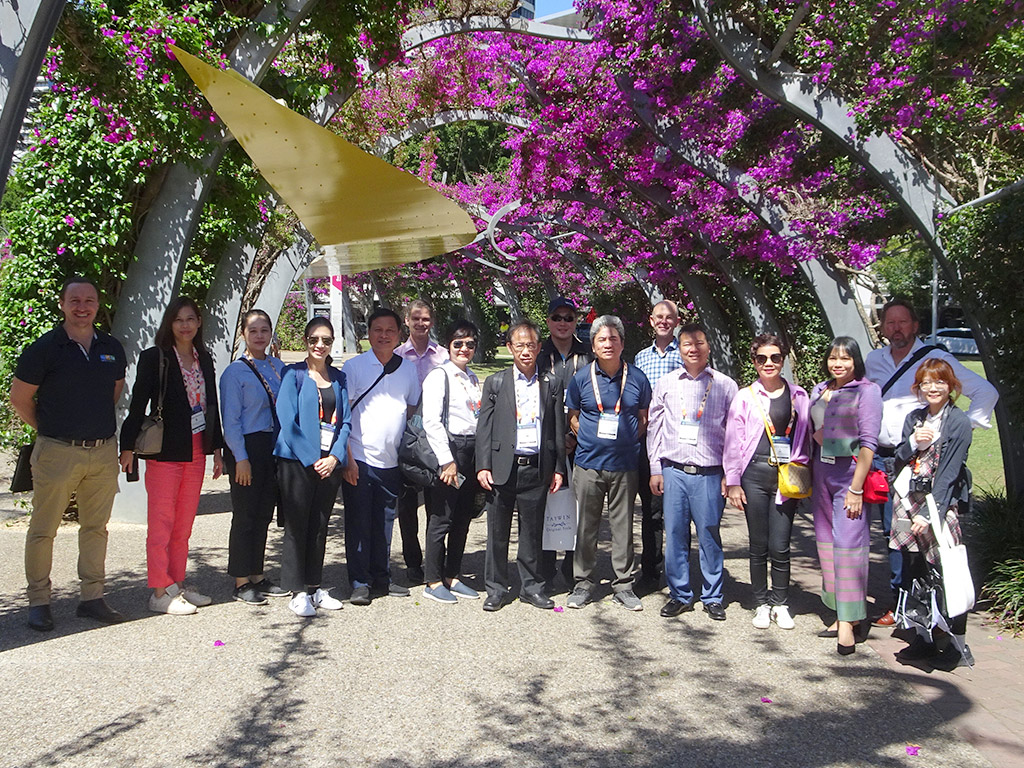
Supporting integrated urban water management in Thailand’s Eastern Economic Corridor
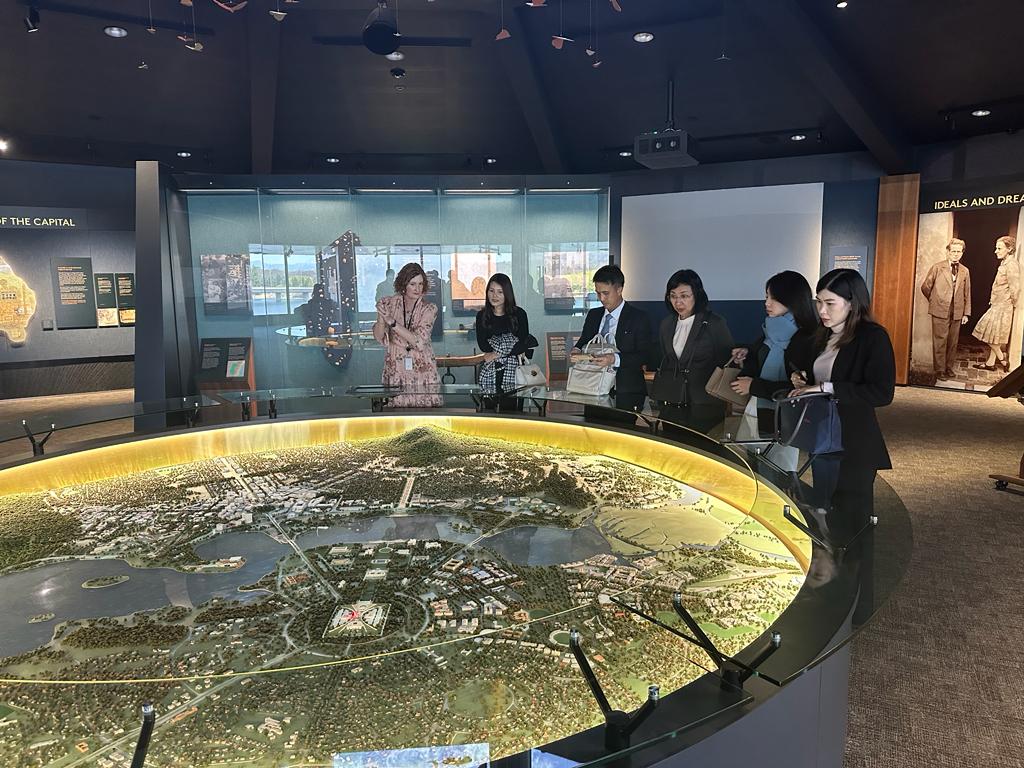
Get the run down on the RUCaS Regional Conference and Training, held over 4 days in November 2023
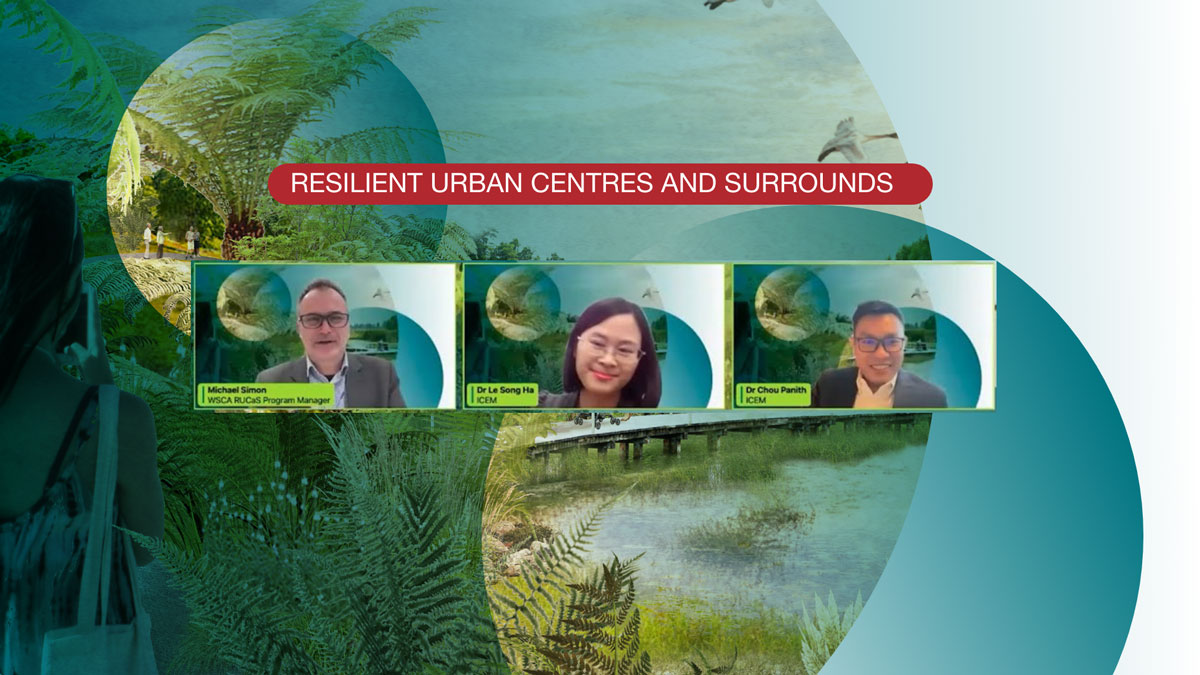
Improving climate change and water security outcomes for peoples with disabilities
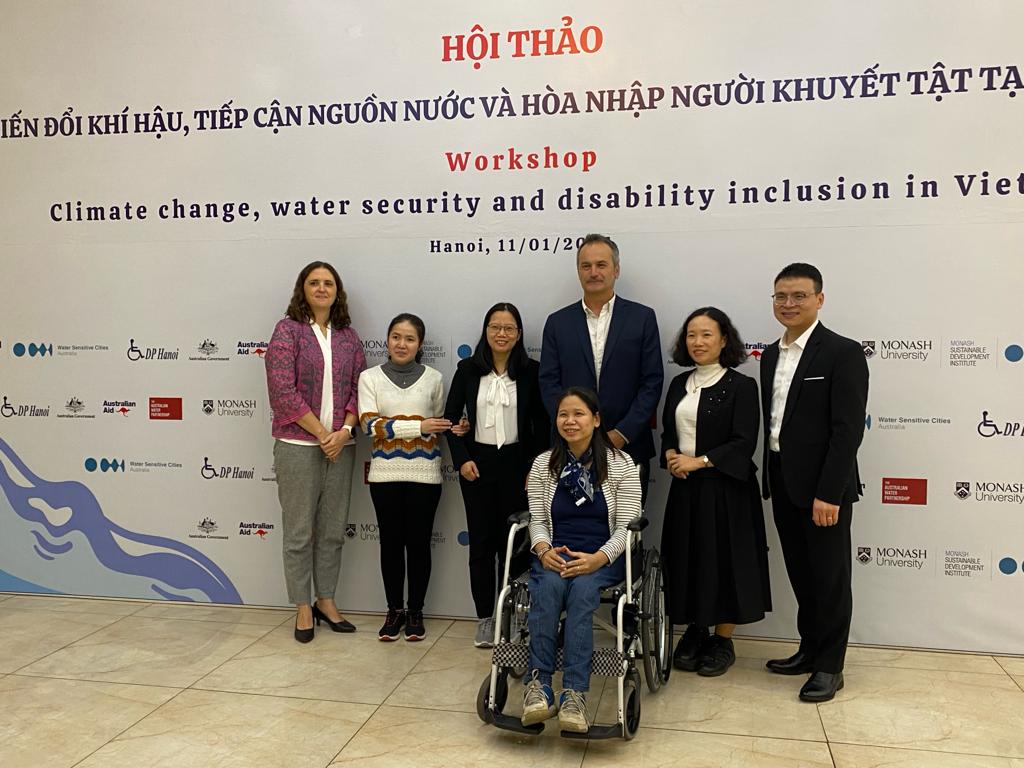
New faces at Water Sensitive Cities Australia

